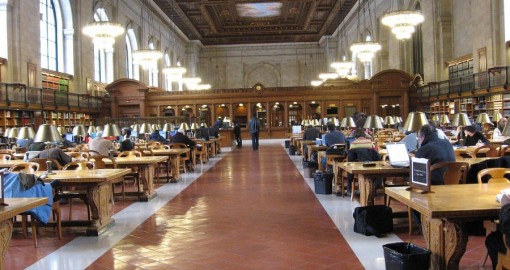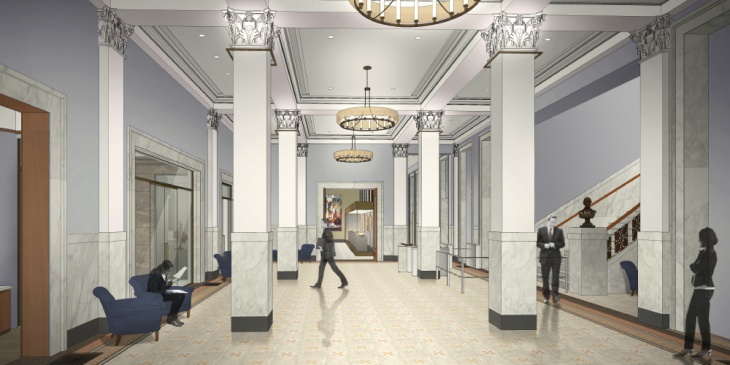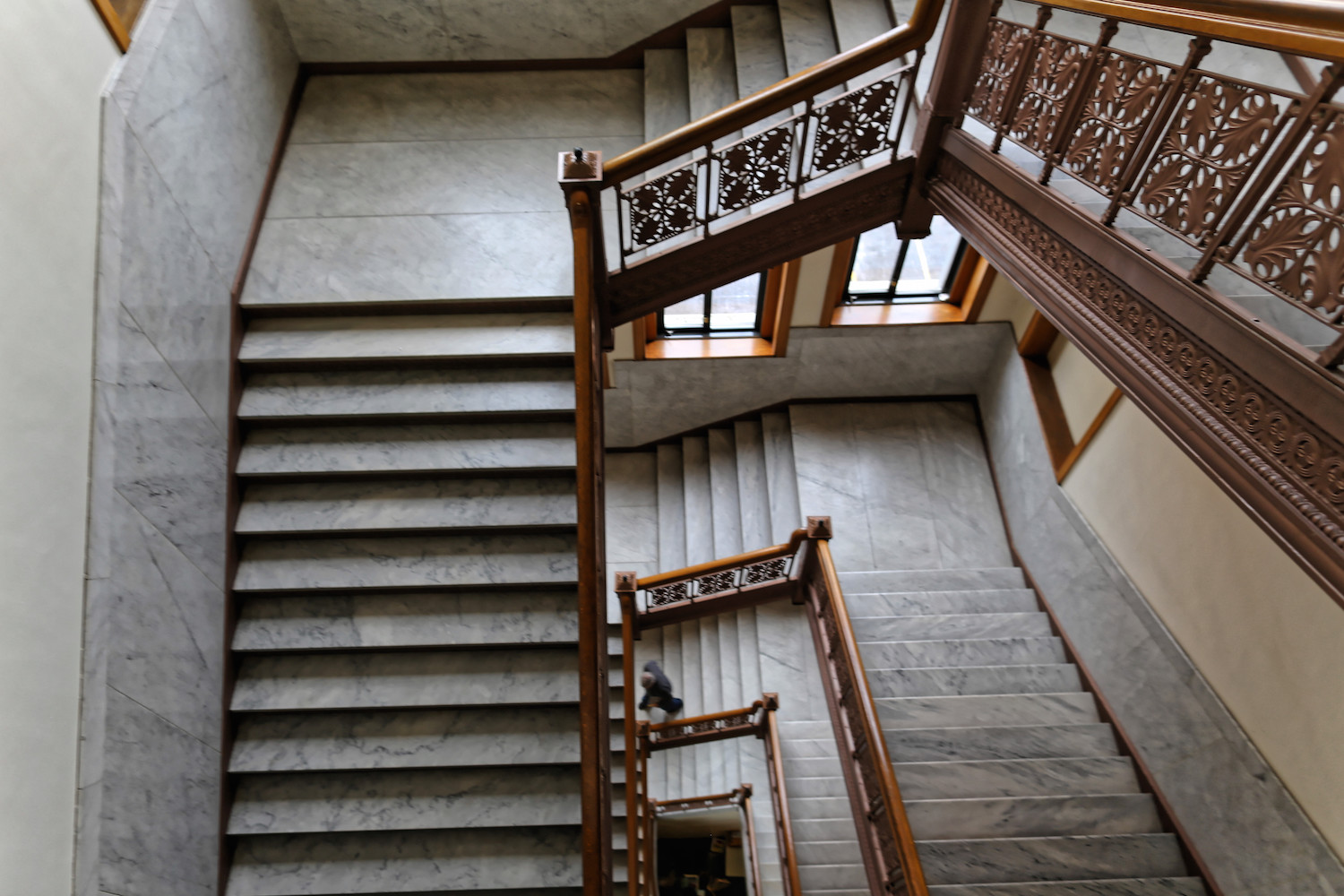NewMusiWorks prented the premiere of “Fly through the night, and land near dawn,” with Shannon D’Antonio, violin; Kristin Garbeff, cello; and David A. Jaffe, mandolin/mando-cello. Sept. 28, 2024. Santa Cruz, California
Projects
This page contains news about current and recent projects. Also see News section.
Northwest Passages, 13 climate alarms from the Arctic, for 13 violas
Commissioned by Joanna Hood, this work is scored for the unusual combination of 13 violas, often playing separate parts. Premiered at the University of Victoria, Victoria, Canada, 2024. European premiere at the 50th International Viola Congress, Conservatoire Municipal Nadia et Lili Boulanger, Paris, France 2026.
The Northwest Passage, sought for five centuries by European explorers as a sea route to China, was finally achieved by Roland Amundsen in 1906 and represented both a triumph of navigation and a shrinking of the globe. Today's situation is more ominous, with melting ice forging unprecedented new "passages" through the Arctic, as temperatures rise at nearly twice the global average, threatening ancient ways of life and signaling a global crisis.
"Northwest Passages, thirteen climate alarms from the Arctic" is a musical soundscape that invokes the Arctic panorama, its contemporary disruption and the urgency of addressing it. Its thirteen diverse sections, presented as one continuous movement, represent my latest exploration of same-instrument orchestration (along with works for 5 double basses, 8 cellos, 8 guitars and 10 flutes.) The unique timbre of thirteen distinct viola parts enables massive textures suggesting the vastness of the landscape, as well as glacial layering, sliding, splitting, melting and deformation. In addition, the instruments merge in various combinations, with solo passages from the 13th viola (performed by Viola 1) providing a lone personal voice.
The sections are titled as follows:
Shrinking Ice Sheets
Sea Level Rise
Warming Ocean
Narwhal
Global Temperature Rise
Polar Bear
Caribou
Extreme Events
Beluga
Melting Sea Ice
Feedback Loop
Glacial Retreat
One Planet
A new dance work by Nancy Karp + Dancers, with music performed by the Friction Quartet and David A Jaffe
In 2022, Nancy Karp + Dancers commissioned a new work from David A. Jaffe for a full-evening dance piece entitled “fly through the night, and land near dawn.” The music consists of three works by David A. Jaffe: Fox Hollow, for string quartet, String Quartet for Two Instruments, for violin and viola, and a new commissioned work, with the same title as the dance piece, scored for mandolin/mando-cello, violin and cello. It was premiered at the Dresher Studio in Oakland, California in late October, 2022. The music was performed by the Friction Quartet, with David A. Jaffe, mandolin/mandocello.
Here is a video of the entire performance. . .
Site-specific commission for Newberry Library - Open House Chicago
I was honored to have been awarded a commission to write a site-specific work for the famous Newberry Library (https://www.newberry.org/) as part of Open House Chicago (https://openhousechicago.org/), funded by Access Contemporary Music https://www.acmusic.org/. My piece focuses on the front lobby and stairwell, with the instruments separated spatially. Event is Saturday, October 13, 2018. The work was played continuously (with short breaks) throughout the afternoon.
The video below was performed by Cory Tiffin – clarinet and Violetta Todorova – violin.
Founded in 1887, the Newberry Library was designed by Henry Ives Cobb, whose taste for both architectural detail and monumentality is reflected in the neo-Romanesque exterior of the building. The interior took shape according to the vision of the Newberry’s first president, William Frederick Poole, who restrained Cobb’s grandeur in favor of more practical considerations: rooms allowing users to access reading material as easily as possible. Since opening its doors 125 years ago, the Newberry has undergone a number of renovations, including a project completed this September that modernizes the first floor with a new welcome center, redesigned galleries, an expanded bookshop, and a range of spaces for public programming.
Recent Commissions
“Fly through the night, and land near dawn,” for violin, cello and mandolin/mandocello, commissioned by Nancy Karp + Dancers; “Northwest Passages” for eight violas, commissioned by Joanna Hood; "“Antiphon” for clarinet and violin, commissioned by Access Contemporary Music; Eight O's in Woolloomooloo," for contralto and baroque string quartet (with viola da gamba), commissioned by Galax Quartet; "Fox Hollow," a string quartet, commissioned by the Lafayette String Quartet; "The Library of Babel," for two five-octave marimbas, commissioned by Jack Van Geem; "The Space Between Us," for two string quartets and Radiodrum-driven Trimpin percussion, commissioned by Other Minds; "Congregations" for eight cellos, commissioned by Cello Octet Amsterdam.
New Responsive Web Site - davidajaffe.com
We are happy to announce a new responsive web site, davidajaffe.com. This site is very much still a work in progress and we will be continuing to improve it over the coming months. Please report any issues you encounter,, and note the device and browser you are using.
The older web site is still on line and can be accessed via jaffe.com.
"How did it get so late so soon?", for violin and orchestra
Performance of third movement of new violin concerto (composed May 2016) from Tytuvenai Festival, in Lithuania. For further information, and video of the first two movements, please follow this link: "How Did It Get So Late So Soon?"
"How Did it Get So Late So Soon?" is a musing on time folding back on itself, in homage of beloved children's author Dr. Seuss, whose wildly creative illustrations and texts inspired the melodic shapes and satirical overtones of the work.
This twenty-five minute concerto is the latest in a series of works exploring non-linear perception and connection. Earlier such compositions include "The Space Between Us" for eight strings, Trimpin percussion and radiodrum (2011); "Quiet Places," for string quartet (1996); and "Dybbuk," for chamber ensemble (1980).
It was premiered on Saturday, August 27, 2016 at 8:00 pm at the Tytuvenai Festival, Lithuania. Karen Bentley Pollick, violin; Lithuanian National Opera and Ballet Theatre Orchestra, Robertas Šervenikas, conductor.
The US premiere (in slightly different orchestration) was Nov. 11, 2016 with Karen Bentley Pollick and the Boulder Chamber Orchestra, Bahman Saless, conductor.
The title is taken from this short poem by Dr. Seuss:
“How did it get so late so soon?
It's night before it's afternoon.
December is here before it's June.
My goodness how the time has flewn.
How did it get so late so soon?”
Animation created for live performance of "'Cluck Old Hen' Variations"
Violinist Karen Bentley Pollick, one of America's leading contemporary music violinists, has been championing the medium of live video/film combined with solo violin. In a desire to include "Cluck Old Hen Variations" in these shows, we enticed video animation artist Fred Kolouch to create a fanciful animation, based on ink drawings and simple abstracted objects, all suggested by the words of the folk tune, "Cluck Old Hen," which served as the basis of "Cluck Old Hen Variations." The words go "My old hen's a good old hen, she lays eggs for the railroad men, sometimes nine sometimes ten, that's enough for the railroad men. My old hen cackles, she cackles quite a lot, the next time she cackles, she'll cackle in a pot."
Info on performances here. Here are several stills from the animation...
"Eight O's in Woolloomooloo", text by Mark Twain
Just finished the Galax commission, "Eight Os in Woolloomooloo."
Here is a description of the piece...
Mark Twain, during his 1897 trip around the world, wrote in his diary:
Blazing hot, all day. December 20. Back to Sydney. Blazing hot again. From the newspaper, and from the map, I have made a collection of curious names of Australasian towns, with the idea of making a poem out of them. It may be best to build the poem now and make the weather help.... Those are good words for poetry. Among the best I have ever seen. There are 81 in the list. I did not need them all, but I have knocked down 66 of them, which is a good bag, it seems to me, for a person not in the business... The best word in that list, and the most musical and gurgly is Woolloomooloo... It has eight O's in it.
"Eight O's in Woolloomooloo" traverses a vast space, full of extreme contrasts and absurd exaggerations, inspired by Twain's satirical genius. The music is down-home American... what else could it be?... but peppered by impressions of the Australian outback.
The work was written specifically with Baroque instruments in mind, with their distinctive timbre and coloration (though it can also be performed on modern instruments), and for the virtuosity and musicality of the Galax Quartet. The vocal part was inspired by Karen Clark's beautifully expansive pure tone and stylistic flexibility, ranging from opera to bluegrass.
"Eight O's..." was commissioned by the Galax Quartet with the help of a grant from the Aaron Copland Fund for Music. Thanks also to Australian Professors Philip Mcmanus, Alistair Riddell and Peter Kirkpatrick, who helped with the pronunciation of the place names.
Commission from Galax Quartet with Karen Clark
The Galax Quartet has commissioned me to write Eight O's in Woolloomooroo, based on a text by Mark Twain. In this work, Galax will be joined by contralto Karen Clark. Work on the piece is supported by a grant from the Aaron Copland Fund for Music, the San Francisco Early Music Society and the Galax Quartet.
Galax Quartet is modeled after an early version of the string quartet — two Baroque violins, Baroque cello and viola da gamba — developed by the eighteenth century composer and viola da gamba virtuoso, Carl Friedrich Abel. The personnel of Galax include some of the top early music musicians in the world: Elizabeth Blumenstock, David Wilson, Roy Whelden and David Morris.
I first met Karen Clark when I was a Visiting Professor at Princeton University. There,as part of the Composer's Ensemble, she gave a stellar performance of my work, Number Man, for the ghost of J.S. Bach for four voices and oboe. I was floored by the flexibility of her voice and by her musicality. I am very much looking forward to collaborating with her and Galax on this new work.
Universal Audio UAD2, Apollo, RealTime Rack, EMT-250
On the technical front, I've recently been involved in a variety of projects as part of my role as Senior Scientist/Engineer at Universal Audio.
Fox Hollow, for string quartet
Fox Hollow is a string quartet commissioned by the Lafayette String Quartet. The work was premiered at Open Space in Victoria, BC, Canada, on November 8, 2013.
The title refers to the Fox Hollow Folk Festival, which I attended as a teenager (and later performed in, as part of "Bottle Hill," an eclectic bluegrass band). The festival was hosted by the Beers Family on their family homestead, and ran from 1966 to 1980. While I have been to many festivals of all kinds before and since, this one stands out as particularly meaningful.
Steve Winter of WSHU describes the festival as follows: "It was a festival of the times, steeped in romance as a world of musical magic and enchantment was created. It was a festival of intimacy and limited attendance that brought together “big names” with lesser known traditional artists. It was purely acoustic — no electricity."
"Fox Hollow" for string quartet is in four connected movements depicting different moods and times of day: "Sawmill Tuning" is based on the modal banjo tuning used in many Appalachian folk songs. "Midday Blues" begins with a mournful viola solo and includes a freely rhythmic heterophony. "Natural Amphitheater" recalls concerts in which the audience sat on the ground on a terraced hillside. Finally, in "Campground Cacophony Under the Stars," multiple overlapping jam sessions expand and recede until the dawn, when it all starts again.
Cadenza for Mozart Concerto
Wrote a new cadenza for the Mozart G Major violin concerto, 1st movement; this new cadenza is shorter than those that are often played and quickly moves to a remote key (in the stratosphere), then works its way back to Earth.
NotomotoN Unstrung - Improvisation for mandolins and signal-processed robotic percussion
"NotomotoN Unstrung," a collaboration with Andrew Schloss for mandolin and signal-processed robotic percussion, controlled by the "Radiodrum" a 3D percussive controller.
Read MoreThe Library of Babel, for two five-octave marimbas
The Library of Babel is scored for two five-octave marimbas, commissioned by San Francisco Symphony principal percussionist Jack Van Geem. It was premiered at the Zeltsman Marimba Festival in July 2013, performed by Van Geem and Fumito Nunoya. The title refers to a short story by Jorge Luis Borges, which describes a nearly-infinite library containing every possible book of a certain length and format, in every possible language. In addition to every book ever written or someday to be written, the library includes every possible misprint of these books. As the volumes are organized at random, nobody can ever find anything. Yet, somewhere in the library is the answer to every possible question.
The Space Between Us, for two string quartets, Trimpin robotic percussion and piano
The Space Between Us was commissioned by Other Minds, with support from the James Irvine Foundation and the Canada Council for the Arts. It is scored for two spatially-separated string quartets and a set of robotic instruments performed by a percussionist using a 3D sensor. The robotic instruments were created specially for this piece by Seattle sound artist Trimpin, whose work has appeared in galleries throughout the world and who was a winner of a MacArthur "genius" grant. The instruments include a set of 18 chimes that are hung above the audience. The piece was premiered at the 2011 Other Minds Festival. Excerpts below (titles are silent)...
Here is a photo at Trimpin's studio in Seattle, where he is describing to me his ideas for the chime mechanism:
The robotic instruments are controlled remotely by a Radiodrum (a 3-D performance controller with six degrees of freedom.) The work includes a set of chimes that surround the audience and are controlled remotely by the radiodrum, as well as remote control xylophone, glockenspiel and piano.
Congregations, for eight cellos
Congregations is scored for 8 cellos, commissioned by Cello Octet Amsterdam. The piece is in four movements, "String Band," "Minyan," "Sparring Match," and "Refuge."








